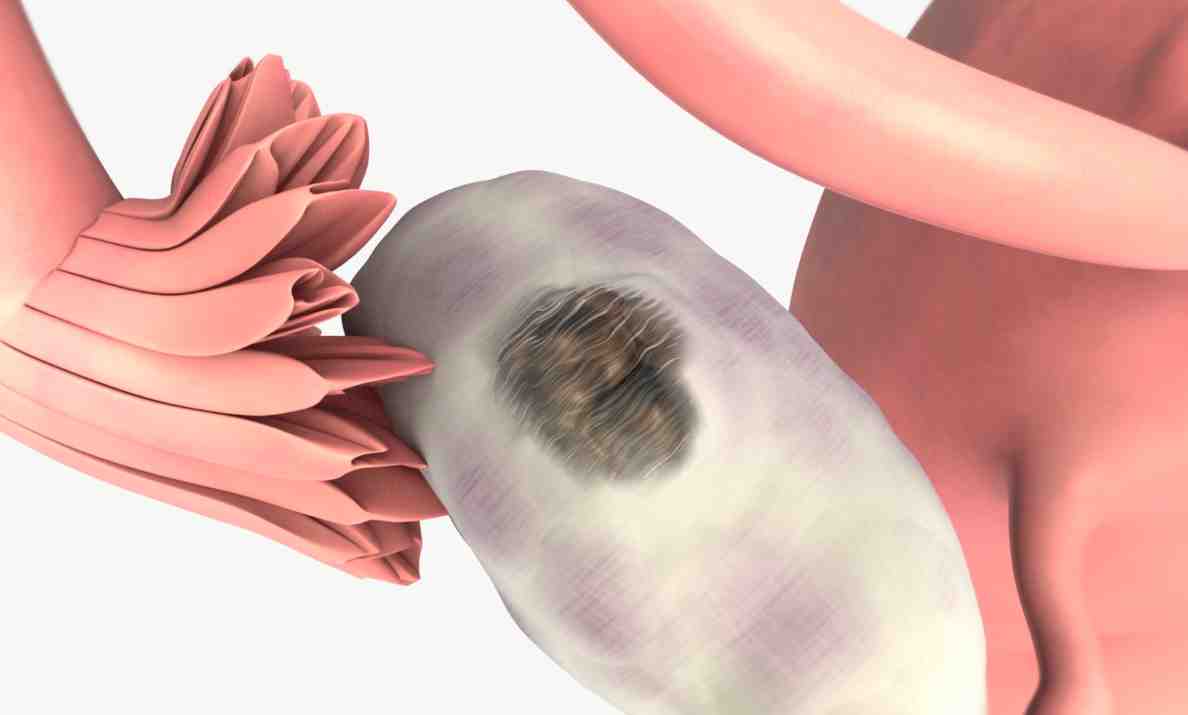Linda, 21, began to experience irregular and painful periods at age 14. Her doctor then diagnosed her with polycystic ovarian syndrome (PCOS), a common endocrine disorder which causes an imbalance of sex hormones in women. The Doctors send Linda to OB/GYN Dr. Jennifer Ashton to find out her treatment options.
Tag: PCOS
Health: Fertility Problems Could Be Caused by PCOS
Polycystic Ovary Syndrome (PCOS) affects between 5 per cent and 10 per cent of women in their reproductive years. It is considered one of the leading causes of subfertility in females. Subfertility describes a situation where a person less fertile than normal but still capable of reproducing. PCOS is treatable.
Infertility, Diabetes, Obesity and the Mystery of PCOS
Scientists know this much about polycystic ovary syndrome: It is one of the most common causes of infertility. It’s linked to diabetes and several other troubling health problems. It affects as many as 5 million U.S. women.
PCOS in Adolescents: Beyond the Reproductive Implications
Polycystic ovary syndrome (PCOS) is one of the most common endocrine disorders in adolescent and adult women, and importantly has both reproductive and metabolic consequences. However, PCOS is likely underdiagnosed, especially in adolescent patients.
Eating a Big Breakfast May Increase Fertility in Women with Polycystic Ovary Syndrome: Study
Making breakfast the biggest meal of the day helped women with PCOS control insulin resistance, which helps balance hormones, a new study found.
September is PCOS Awareness Month: Learn About Diagnosis and Treatment
During the month of September, The AFA will be resurfacing much of our library’s authoritative and informative content on Polycystic Ovarian Syndrome (PCOS), including this significant article on Diagnosis and Treatment of PCOS, written by …
NIH to Host PCOS Workshop
The Office of Disease Prevention and the Eunice Kennedy Shriver National Institute of Child Health and Human Development at NIH will co-sponsor an Evidence-based Methodology Workshop on Polycystic Ovary Syndrome (PCOS) on December 3-5, 2012. ASRM is pleased to join as a Supporter of this workshop.
Does my daughter have PCOS? A guide for concerned moms
by Corey Whelan
Who can forget the agonies associated with high school. The desire to fit in with the crowd, yet stand out as a star has taken its toll on just about every adolescent ever born. As if it wasn’t hard enough, for some …
How excess body hair can be a warning sign of infertility
The 30-year-old sales and marketing manager from Buckinghamshire has polycystic ovary syndrome (PCOS), a hormonal imbalance in which women’s ovaries produce excessive amounts of the male hormone testosterone.
This results in the formation of small harmless cysts as well as symptoms such as excessive hair growth (known as hirsutism), baldness, erratic periods, weight gain, acne and fertility problems.
The condition, which affects one in ten British women, should not be confused with polycystic ovaries, which merely describes the appearance of small cysts on the ovaries. (Roughly 20 per cent of women have this condition with no effects at all and no problems conceiving.)
Women with PCOS have both the cysts and the symptoms caused by excess testosterone.
While Marianne is fortunate to have few of the symptoms, she is blighted by excess hair, which she says makes her feel utterly unfeminine.
‘As well as waxing my face every fortnight, I use an epilator on my abdomen,’ she says.
‘If I didn’t, the hair on my face and body, which is thick and very dark, would be grotesque.
‘Bill is sweet and maintains he doesn’t notice a thing, but it’s impossible for him not to see the hair growth.
‘I hate it. I’m fighting what feels like a losing battle against hair sprouting in places no woman should have it.’
The condition can run in families and Marianne believes a great-aunt had it.
‘She didn’t have children, and I remember her whiskery chin very clearly,’ she says.
What Is Polycystic Ovary Syndrome
- Irregular or skipped menstrual periods
- Obesity and difficulty controlling weight gain
- Male pattern hair growth
- Acne and other chronic skin conditions
- Dark brown or black patches on the skin
Polycystic Ovary Syndrome and Infertility
PCOS is the most common hormonal abnormality causing infertility in women. It affects fertility by suppressing ovulation. Egg follicles may begin to mature but do not ovulate or release the egg into the fallopian tube. These follicles remain as cysts in the ovaries. In women with PCOS, the ovaries also produce excessive amounts of testosterone (male hormone) that can lead to acne and hair growth. In the fat cells, testosterone is converted to estrogen, leading to excessive buildup of the uterine lining which may contribute to heavy or irregular bleeding.Fertility Treatment for PCOS
High levels of insulin associated with obesity interfere with ovulation and also worsen PCOS symptoms. Minimizing insulin resistance via a healthy, safe weight loss regimen is a common first step for patients with PCOS who want to make conception more likely. Insulin regulating medications may also be prescribed. Some women are able to begin ovulating more normally at this point and may be able to conceive naturally.Fertility enhancing drugs such as Clomid, Metformin and gonadotropins may be used to stimulate ovulation. This approach is tried after other potential causes of infertility have been ruled out. In-Vitro-Fertilization can also be used for some women with PCOS. by: Dr. John Jain
